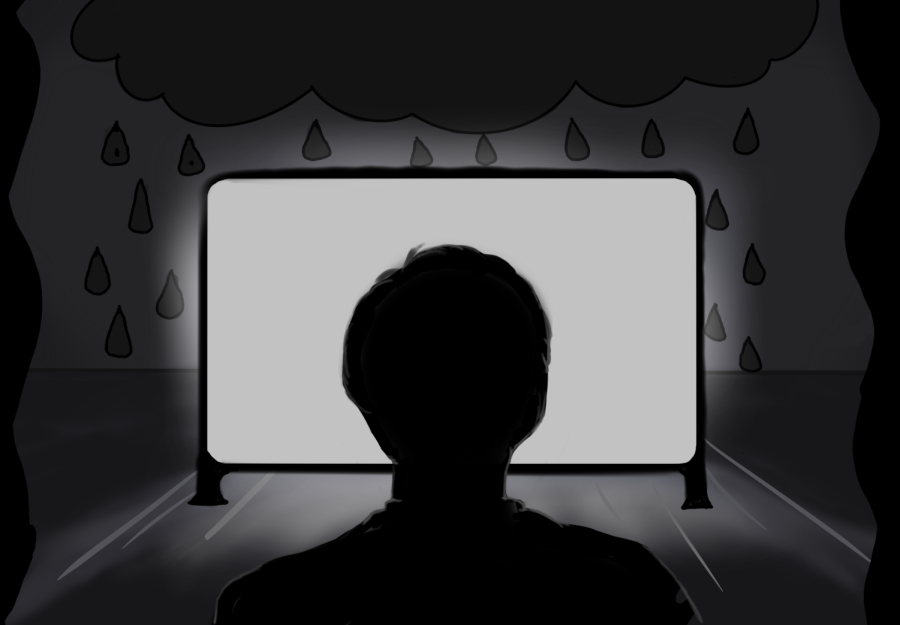A&E: ‘It’s like a roller coaster’
The SCHS community appreciates sad movies, shows and media
Junior Venice Ella Mayor opens her laptop ready to watch a movie with popcorn and a smile, ending with their face red with tears. They knew what they were getting into with “Eternal Sunshine of the Spotless Mind.” Despite the somber elements of the film, they rewatched, reliving the moments.
Sad movies are aimed to make viewers feel emotion for the characters and often leave audiences teary-eyed and heartbroken. Some may wonder why they continue to sit through a movie knowing it will likely sadden them. SCHS students and teachers discuss their experiences and reasons for watching tragic movies, knowing it will bring them sadness.
Anime fans often know what they are in for when they put on their favorite shows as many animes have notoriously sad premises and endings. Freshman Lee El-Domeiri recalled crying after watching “A Silent Voice,” a Japanese drama known for its heartbreaking ending.
“I expected it to make me cry because a lot of people told me that it was really sad,” El-Domeiri said. “But I didn’t expect it to be that bad because I tend to not cry at movies easily, but for some reason, this one hurt.”
Despite normally being unaffected by emotional shows or movies, El-Domeiri tends to match their entertainment to their moods. They enjoy sad shows when they need help understanding their emotions as vulnerability is often a hard feeling to process.
“I get to feel emotion,” El-Domeiri said. “The more I watch sad movies, the more I have an excuse to be more emotional rather than just cry for no reason.”
Verbally communicating emotions can be difficult, especially for students. Similar to El-Domeiri, Mayor finds watching movies that match her current mood help her to express how she feels.
“I think I just tend to watch it because it just lines up with whatever emotion I have, and I tend to want to continue feeling that emotion,” Mayor said. “It’s like a roller coaster. I want to ride that roller coaster until I finish, and so I think watching a movie helps facilitate that.”
Films are more likely to affect how viewers feel if they can relate to the emotions characters experience. Relating to experiences on the screen can help viewers to feel less alone. Mayor enjoyed “Everything Everywhere All At Once” for its representation of a complicated family relationship, though it left them sobbing.
“I could relate to the characters in the movie, even if it’s a sci-fi film, and a lot of it is outlandish,” Mayor said. “I think the core concept of mother-daughter relationship between an immigrant mother and her immigrant daughter is what resonates with me.”
Typically, movies that are aimed toward younger audiences are meant for smiles and laughter. According to English and theater teacher Angelo Reyes, adults can see the meaning behind films better than younger audiences as they have experienced the themes throughout their life.
“You don’t have to pause and as you get older, you start enjoying movies that are really driven by the dialogue, and you start connecting more to topics that you may have gone through in your life,” Reyes said.
Movies that covered alcoholism, like “City of Angels” and “The Notebook,” were memorable for Reyes as they resonated with his own experiences with people struggling with alcohol abuse. Despite the complexity of alcoholism, Reyes learned to think of his situation in a more positive light after seeing others experience the same problem.
“There were a few parts that I felt emotion for the character and any movies that dealt with alcohol abuse combat because my dad had that issue, so it kind of stirs up memories, which I don’t think is a bad thing,” Reyes said. “It makes you think about certain things.”
Sad films are often popular for the emotions they bring out, whether they are positive or negative. Many people learn about themselves or their past after watching an emotional show. Some may start understanding that sadness is not always a bad feeling and that finding a healthy outlet to express their sadness can be beneficial.
Many at SCHS, like Reyes, use films to process their feelings whenever they are not feeling their best.
“It (seeing similarities in life and film) helped me understand that topic more and it helped me deal with it, and if you’re a person that doesn’t like to converse about certain things, it’s good to let it out,” Reyes said. “You don’t want to bottle all that in and then burst unexpectedly.”


